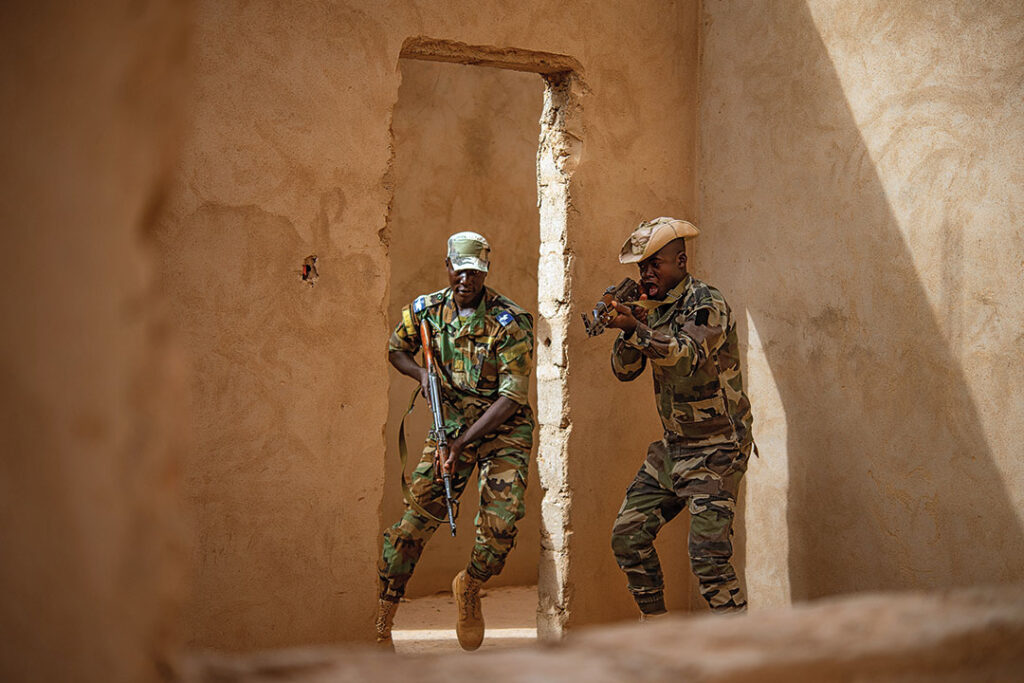U.S. Africa Command Staff
The people of the Sahel are resilient. They have to be. The 5,000-kilometer-long band below the Sahara is marked by extreme beauty and a harsh climate. Farmers defy the odds to grow crops in semiarid conditions. Herders travel long distances to find pastures for their flocks. Communities uphold traditions that date back centuries.
But in recent years residents of this region have battled a new foe: extremism. Since the 2012 Malian crisis, homegrown and foreign extremist groups have expanded in the region. They’ve recruited young people, exacerbated ethnic tensions and destabilized governments. The past two years have been the deadliest on record for terror attacks in the Sahel.
Security forces are responding. In 2017, five Sahel countries created the G5 Sahel Joint Force consisting of 5,000 Soldiers. The effort is designed to degrade terrorist strongholds and shut down cross-border trafficking routes.
Another effort is Operation Barkhane, a continuation of France’s intervention in Mali that began in 2013. The 4,500-person mission emphasizes training and joint operations with national militaries. With permanent bases in Mali, Niger and Chad and numerous forward operating bases, Barkhane has successfully degraded the leadership of the Islamic State in the Greater Sahara and other groups.
In Mali, the 16,000-person United Nations mission, MINUSMA, works to preserve a fragile peace and allow displaced civilians to return home. Gains there have been hard-won. With more than 200 peacekeepers killed since its inception, MINUSMA is the deadliest peacekeeping mission in the world. But the sacrifice made by these peacekeepers is allowing for progress. The mission has provided the security needed for a “national dialogue” led by Mali’s president, which is aimed at promoting peace and reconciliation.
Achieving a lasting peace in the Sahel will not be easy. Ethnic disputes and fights over natural resources promise to continue as they have for centuries. But the people of the region know that terrorism is not endemic to the Sahel, and they are joining to reject it.
Regional security efforts are a sign that the people of the Sahel now see that their fates are linked. The G5 Sahel sums this up with the motto: “For a Shared Prosperity.” For the region to prosper, its militaries, governments, civil society leaders and civilians must work together.

